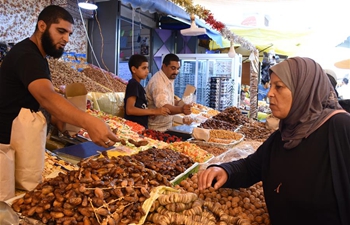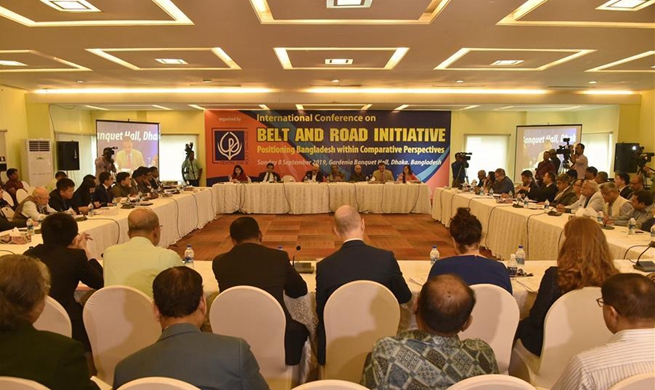GENEVA, Sept. 9 (Xinhua) -- Despite progress, one person still dies every 40 seconds from suicide globally, the World Health Organization (WHO) said Monday in a statement, calling on all countries to strengthen their suicide prevention and education strategies.
The WHO's call came on the eve of World Suicide Prevention Day on Tuesday. Though the number of countries with national suicide prevention strategies has increased in the five years since the publication of the WHO's first global report on suicide in 2014, the total number of countries with strategies, at just 38, is still far too low and governments need to commit to creating them, the WHO said.
WHO statistics show that close to 800,000 people die due to suicide every year, which is nearly one person every 40 seconds, and for every suicide there are more than 20 suicide attempts. Suicide is the second leading cause of death among 15 to 29-year-olds, and 79 percent of suicides globally occur in low and middle-income countries.
The most common methods of suicide are hanging, pesticide self-poisoning, and firearms. Key interventions that have shown success in reducing the number of suicides are restricting access to means, educating the media on responsible reporting of suicide, implementing programs among young people to build life skills that enable them to cope with life stresses, and early identification, management and follow-up of people at risk of suicide, the WHO recommended.
The most imminent intervention to bring down the number of suicides is restricting access to pesticides that are used for self-poisoning. The high toxicity of many pesticides means that such suicide attempts often lead to death, particularly in situations where there is no antidote or where there are no medical facilities nearby.
A growing body of international evidence has indicated that regulations to prohibit the use of highly hazardous pesticides can lead to reductions in national suicide rates, the WHO said, citing the examples of Sri Lanka and the Republic of Korea.
A series of bans led to a 70 percent decrease in suicides and an estimated 93,000 lives saved in Sri Lanka between 1995 and 2015. In the Republic of Korea, where the herbicide paraquat accounted for the majority of pesticide suicide deaths in the 2000s, a ban on paraquat in 2011-2012 was followed by a halving of suicide deaths from pesticide poisoning between 2011 and 2013.
"Every death is a tragedy for family, friends and colleagues. Yet suicides are preventable. We call on all countries to incorporate proven suicide prevention strategies into national health and education programs in a sustainable way," said WHO Director General Dr. Tedros Adhanom Ghebreyesus.

















